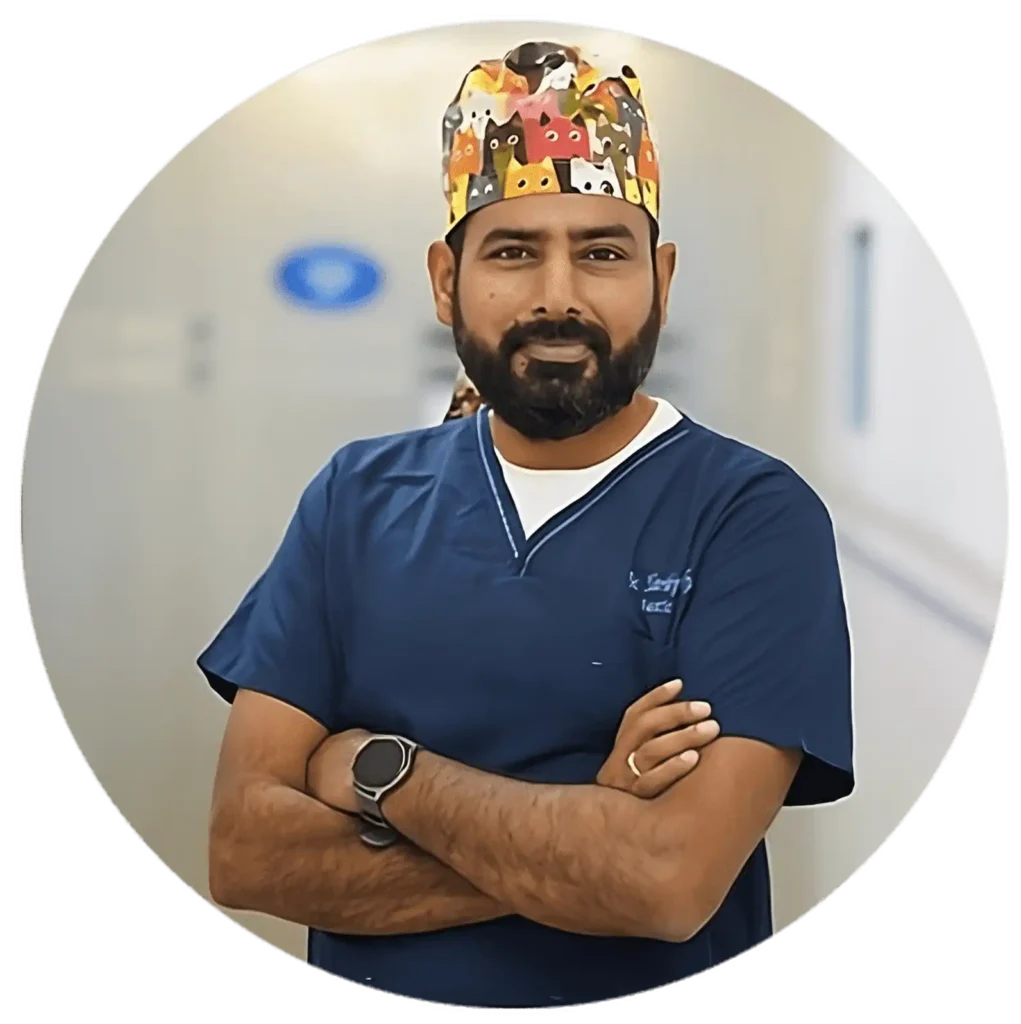Ever spotted a soft bulge around your belly button and wondered what’s going on? You’re not alone. Many adults experience this exact thing—and often brush it off until discomfort kicks in. It’s called an umbilical hernia, and while it may seem harmless at first, there’s more to it than meets the eye.
At Redefine Plastic Surgery & Hair Transplant Center, led by Dr. Harikiran Chekuri, a leading plastic surgeon in Hyderabad, has seen it all—from mild cases that need monitoring to complex ones requiring surgical repair. If you’re wondering whether that odd abdominal lump is something serious, you’re in the right place.
Causes of Umbilical Hernia in Adults
Let’s break it down. Umbilical hernias happen when tissue or part of the intestine pushes through a weak spot near the belly button. Sounds a bit scary? Don’t worry—it’s pretty common.
Now, why do they show up? In adults, it’s usually due to repeated pressure on the abdomen over time. Think carrying extra weight, lifting heavy stuff regularly, or even a nagging cough that just won’t quit. Women who’ve been through multiple pregnancies are especially prone because their abdominal walls have stretched and weakened—much like how postpartum hair loss reflects the physical changes the body goes through after childbirth.
Even past surgeries around the stomach area can leave things a bit vulnerable. Your body’s core is like a fabric—put too much tension on it too often, and it eventually thins out or tears.
Symptoms of Umbilical Hernia in Adults
Here’s the thing—these hernias don’t always shout for attention. You might feel totally fine and only notice a soft bulge when standing or coughing. But when symptoms do pop up, they tend to start subtly and build gradually.
Many people feel a mild ache or pressure near the navel, especially after eating or moving around. In some cases, the bulge becomes firm, painful, or discolored. That’s when you need to act fast—it could mean the hernia’s become strangulated, cutting off blood supply to tissue. Emergency room stuff.
Can Umbilical Hernia Be Prevented in Adults?
Here’s a question patients often ask: “Can I stop this from happening again?” The answer—sometimes, yes. While genetics and past surgeries are out of your control, a few practical habits can make a big difference.
Start with your weight. Carrying extra pounds means constant pressure on your core muscles. Losing even a little weight can ease that burden. Also, skip the strain—don’t lift heavy objects without proper form, and avoid pushing yourself during workouts without support.
Other simple fixes? Eat more fiber to keep digestion smooth (no more straining in the bathroom), and cut smoking—it makes coughing worse and delays healing. Your core will thank you.
Treatment Options for Umbilical Hernia in Adults
So what if you already have one? Can it go away on its own? In babies, maybe. But in adults—not likely.
Surgical repair is typically the go-to solution. It’s not as intimidating as it sounds. Dr. Harikiran Chekuri performs both open and laparoscopic procedures at Redefine, depending on your needs. Some surgeries involve inserting a mesh to strengthen the abdominal wall and lower the chance of the hernia coming back.
Worried about scars? That’s where having a skilled plastic surgeon in Hyderabad matters. Dr. Chekuri approaches every case with both function and aesthetics in mind. Many patients also choose to address cosmetic concerns or even combine it with procedures like a hair transplant in Hyderabad for a more comprehensive transformation.
Conclusion
Dealing with an umbilical hernia as an adult doesn’t mean putting your life on pause. With the right care, it’s completely treatable—and you can get back to feeling like yourself again.
At Redefine Plastic Surgery & Hair Transplant Center in Hyderabad, Dr. Harikiran Chekuri and his team combine surgical precision with genuine patient care. Whether you’re tackling functional issues like hernia repair or exploring aesthetic goals like a hair transplant in Hyderabad, you’re in good hands.
You don’t have to live with discomfort or uncertainty. Get expert advice. Get clarity. And get back to life—comfortably.
Frequently Asked Questions
Who’s most likely to get an umbilical hernia in adulthood?
Adults over 40 are commonly affected, especially those who are overweight or perform heavy physical labor.
Do these hernias ever heal on their own?
In adults, not usually. Surgery is the most effective way to treat and prevent complications.
How long does recovery take after surgery?
Most people are back to light activity in about a week and feel fully recovered in four to six weeks.
Can I get other procedures—like a hair transplant in Hyderabad—at the same time?
Yes, many patients choose to combine treatments at Redefine. Your safety and goals will guide the plan.
Will the scar be obvious?
With laparoscopic techniques and expert surgical care, scarring is minimal and strategically placed.
Is the procedure covered by insurance?
Yes—hernia repair is medically necessary and typically covered under most health plans.
References:
https://www.hopkinsmedicine.org/health/conditions-and-diseases/umbilical-hernia
Disclaimer: The information shared in this content is for educational purposes only and not for promotional use.




